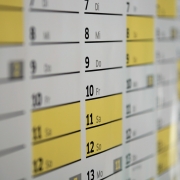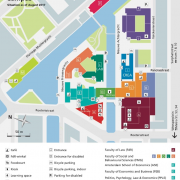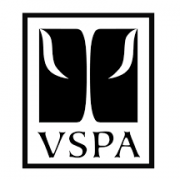During the year you follow several courses. For each course, an exam takes place at the end of each month. This ensures that the first two weeks of the month are fairly quiet, then the third week is hard work required, and the fourth week you will be locked in the library to learn.
European Credits
For each completed course a student will receive credits, called ECTS, but they’re better known as EC’s (European Credits). It is an international European credit system and it emphasizes the study load of a course. An easily achievable course with a very short longitude will probably earn you 3 points, while a difficult course that takes 4 months will earn you 12 points for example. Students need to earn 60 points per year to receive their Bachelor’s degree in three years. All together, the courses in the first year are worth 60 points. Of course, it can happen that you don’t pass a course, in that case, you can retake the exam at the end of the year. If students fail the exam again, they will not receive any credits.
Binding Study Advice
Students are issued with a Binding Study Advice (BSA). This means that students must obtain sufficient study credits in the first year of their Bachelor’s programme to be permitted to continue studying in their second year. This BSA is 48 points for Psychology at the UvA. So this means that if you have not obtained a 12-point course or two 6-point courses, you can still move on to the second year! However, in your second year you will have to make up for the shortfall. If you haven’t obtained the 48 points, you sadly have to stop studying Psychology at the UvA, except if you have specific personal reasons that have prevented you from working optimally on the course.
Year 1, semester 1 (September until January)
– In the first four months you follow the course Introduction to Psychology & Cognitive Psychology. Cognitive Psychology deals with mental activities and the acquisition of knowledge for observations and information processing. Research Methods & Statistics will be followed during the same period. It covers what science is, what scientific research is, how you do your research and finally you will be introduced to statistics.
– In the last four weeks of the semester (January), the course Developmental Psychology discusses the development of humans from birth to death.
– Throughout the first semester you will also learn how to write a scientific piece. This will also take place during the second semester.
– The Christmas holidays are the first break during the year. It takes place from December to January, specific dates depend on the year.
Year 1, semester 2 (February until June)
– In the second semester everyone will start with Social and Work & Organisational Psychology for 8 weeks. During Social Psychology you will learn mainly about group processes and in W&O you will learn about the psychology behind the employee in a company.
– You will then have Clinical Psychology & Brain and Cognition for 8 weeks. Clinical Psychology treats mental disorders and in B&C you learn about the substances and parts in the brain.
– The May Vacation is the second break in the year, it lasts a week and usually takes place around the beginning of May.
– As the last course of the year you will have Professional Orientation. This course helps you choose a specialization for the second year.
For more information, check out the link of the UvA-website for the Psychology Bachelor.






